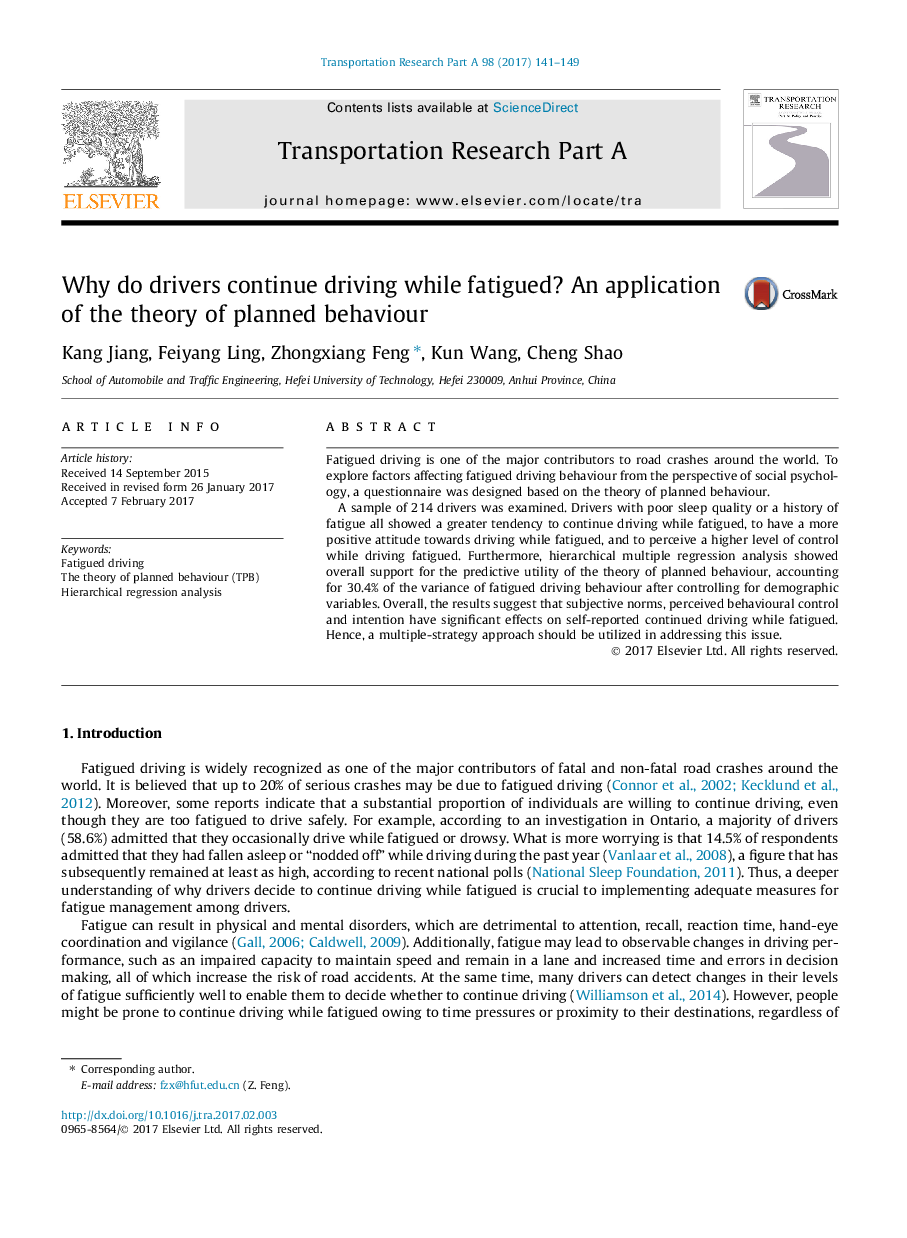| Article ID | Journal | Published Year | Pages | File Type |
|---|---|---|---|---|
| 4929147 | Transportation Research Part A: Policy and Practice | 2017 | 9 Pages |
Abstract
A sample of 214 drivers was examined. Drivers with poor sleep quality or a history of fatigue all showed a greater tendency to continue driving while fatigued, to have a more positive attitude towards driving while fatigued, and to perceive a higher level of control while driving fatigued. Furthermore, hierarchical multiple regression analysis showed overall support for the predictive utility of the theory of planned behaviour, accounting for 30.4% of the variance of fatigued driving behaviour after controlling for demographic variables. Overall, the results suggest that subjective norms, perceived behavioural control and intention have significant effects on self-reported continued driving while fatigued. Hence, a multiple-strategy approach should be utilized in addressing this issue.
Related Topics
Physical Sciences and Engineering
Engineering
Civil and Structural Engineering
Authors
Kang Jiang, Feiyang Ling, Zhongxiang Feng, Kun Wang, Cheng Shao,
